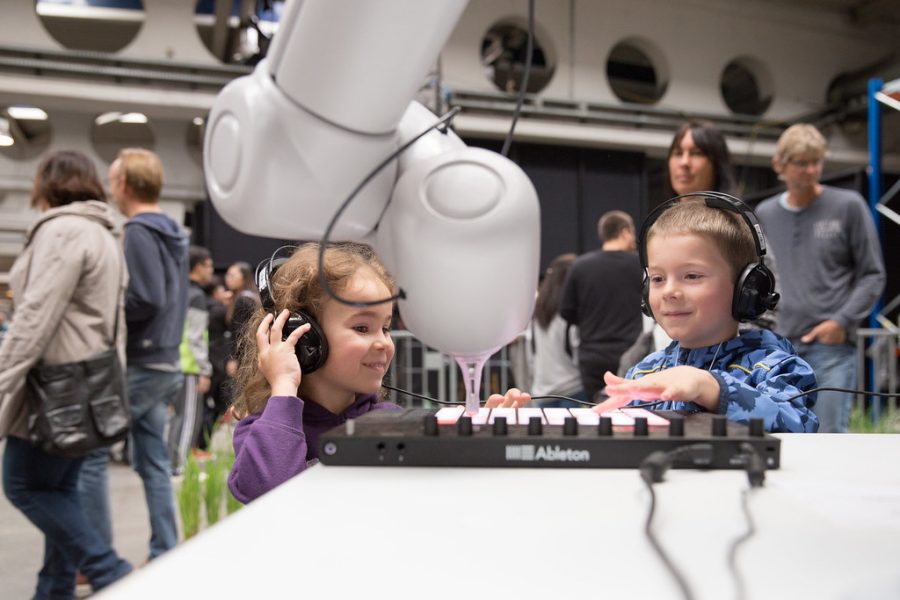AI rocking it in the music industry
AI makes way into music industry with personalized playlists
Flickr
AI and it’s use of lyric creativity creates debate over the efficiency of music creation and its ability to create music that sounds realistic
You had three tests today. You were late for advisory because your ID wouldn’t scan. Someone in the cafeteria tipped your burrito bowl onto your brand new shoes. As the bell rings at 3:30, you can’t wait to stuff your AirPods in your ears and tune the rest of the world out, but none of the playlists you put on shuffle seem to fit your stressed, exhausted mood.
Enter Endel, an app that uses artificial intelligence to craft music for an individual’s mood based on factors including time of day, weather, heart rate, and location.
So-called “generative AI” is becoming ever more present in the modern music industry. The term “generative” refers to a program’s ability to create, in real time, new, unique content in the form of text, image, audio, or code.
Give generative AI a prompt, and it will comb through millions of databases for relevant information and churn out a coherent response in seconds.
Similarly, programs that generate music through AI are fed vast amounts of data in the form of all kinds of compositions in order to “learn” and associate certain genres of music with different sounds.
Many don’t realize this technology is already being used in many websites and apps. Spotify uses AI to recommend music based on what one has listened to in the past. It’s behind all the personalized “Daily Mix” and “Wrapped” playlists that are some of the biggest attractions of the streaming service.
Recently, Spotify announced the release of their DJ feature, which claims to “take personalization to the next level”. (As I finished typing ‘personalization’, Google’s AI-based predictive text feature finished the sentence for me). It assembles playlists based on the subscriber’s musical tastes and features commentary on artists it thinks they’ll love in what Spotify calls a “stunningly realistic” artificially generated voice.
While these features are useful in the eyes of those frequently plugging into streaming platforms like Spotify, the use of artificial intelligence in creating music brings up some legal and ethical concerns.
It is still unclear whether AI generated works are protected under copyright laws. Questions arise over who gets credit for the work. Is it the person who typed in the prompt or the programmer who built the software? It likely depends on the extent of the human contribution to the piece. But the credit for a song fully generated by AI would likely go to the programmer.
Currently, artificial intelligence isn’t strong enough on its own to generate music of the same caliber as mainstream artists. AI’s contributions are usually limited to providing lyrics or basic melodies, upon which humans layer their own ideas. Many agree AI’s work is generic, uninspiring, and often confusing.
“AI music is simply not good enough to create a song that you will listen to and be like, ‘I would rather listen to this than Drake,’” says Oleg Stavitsky, one of the founders of Endel.
But AI will continue to revolutionize the face of the music industry, and its use will only grow in the years to come.
Drew Silverstein, Co-Founder of Amper, another generative AI music program. He hopes that aspiring artists will take advantage of the readily available tools in today’s music industry and use them to create new ideas.
“I think it’s a fair statement to say that AI music will lead to the greatest creative revolution of all time,” says
Each generation has its own ideas of what music should sound like. The technology we develop today will shape the next wave of popular music, celebrities, and hopeful creators.






































